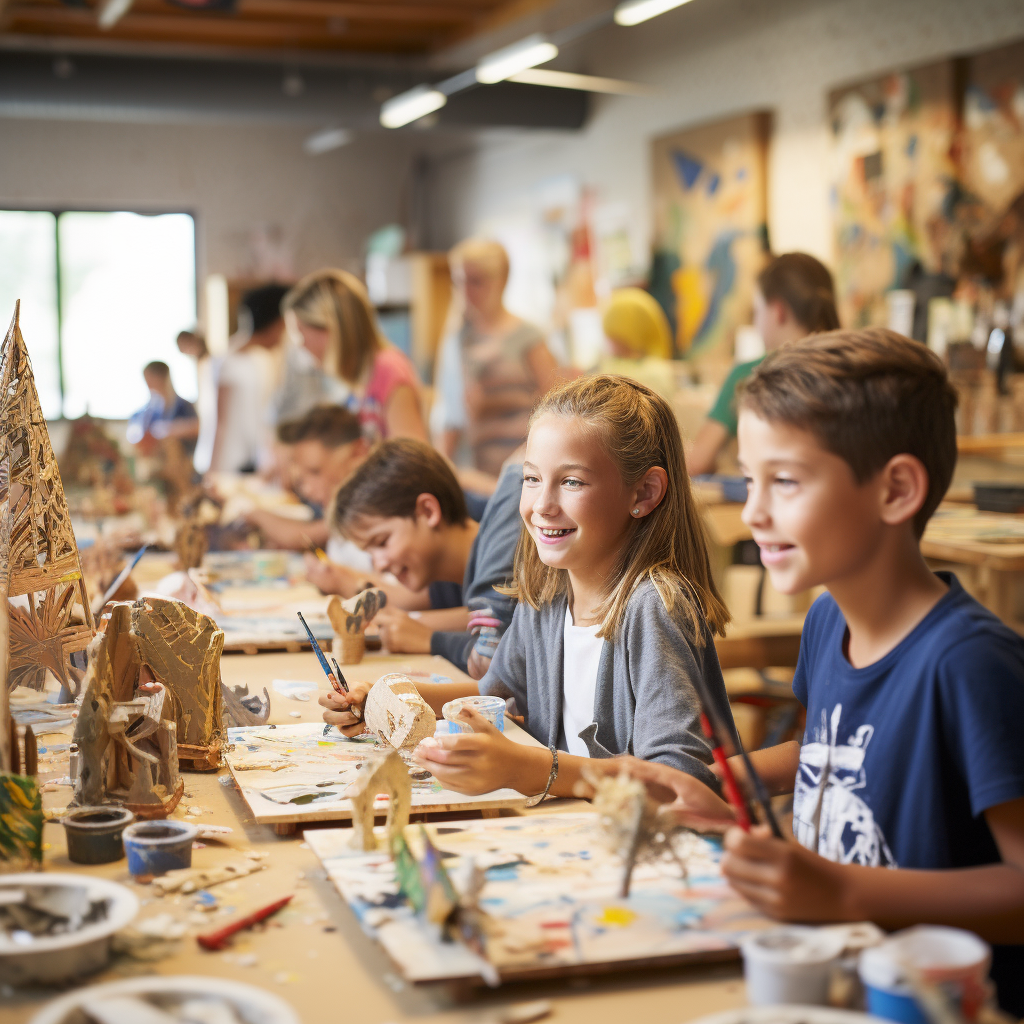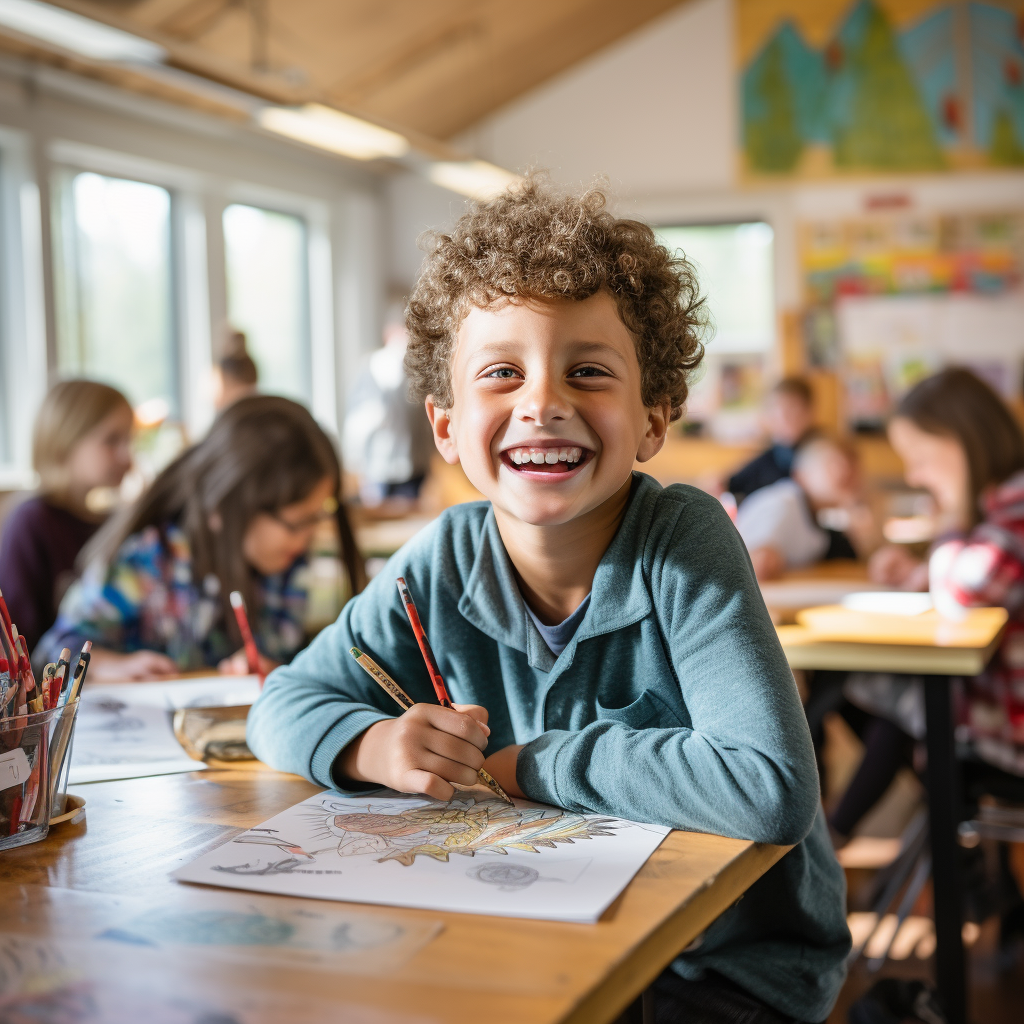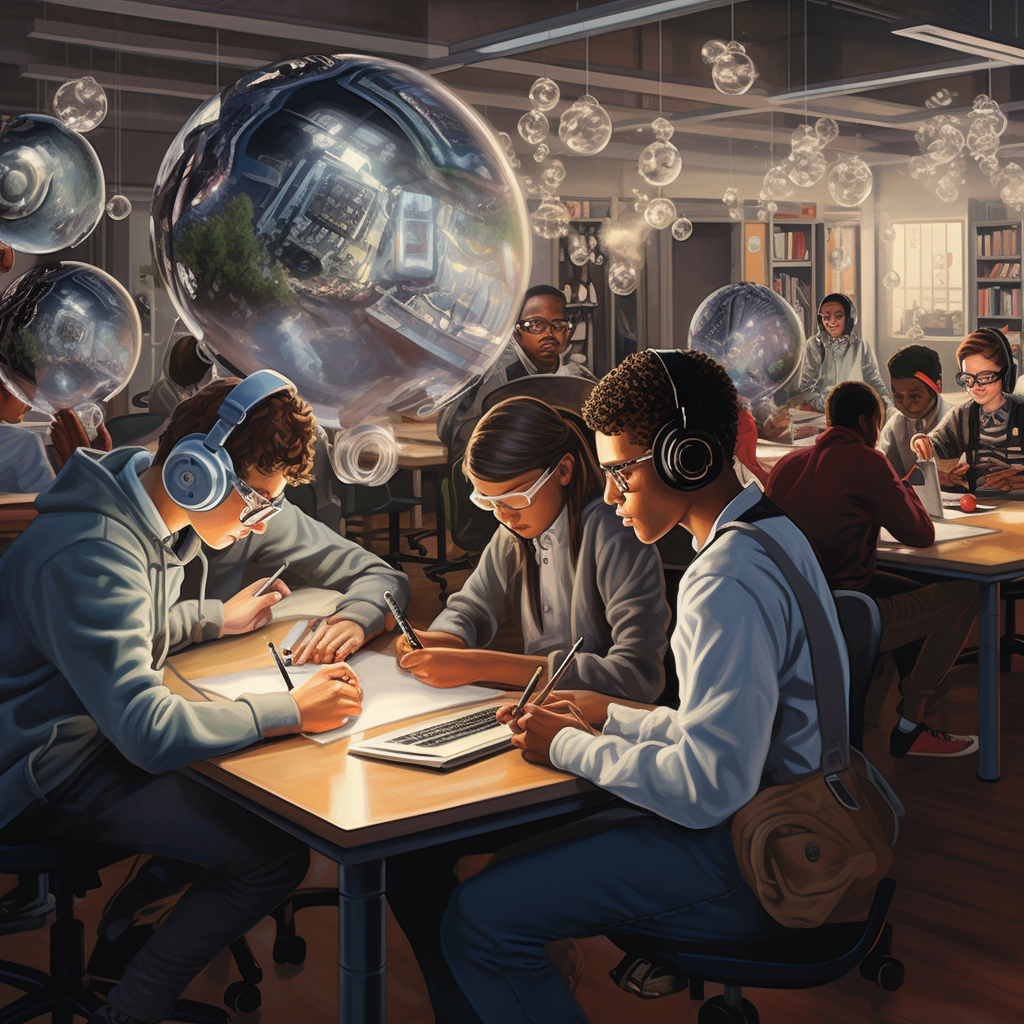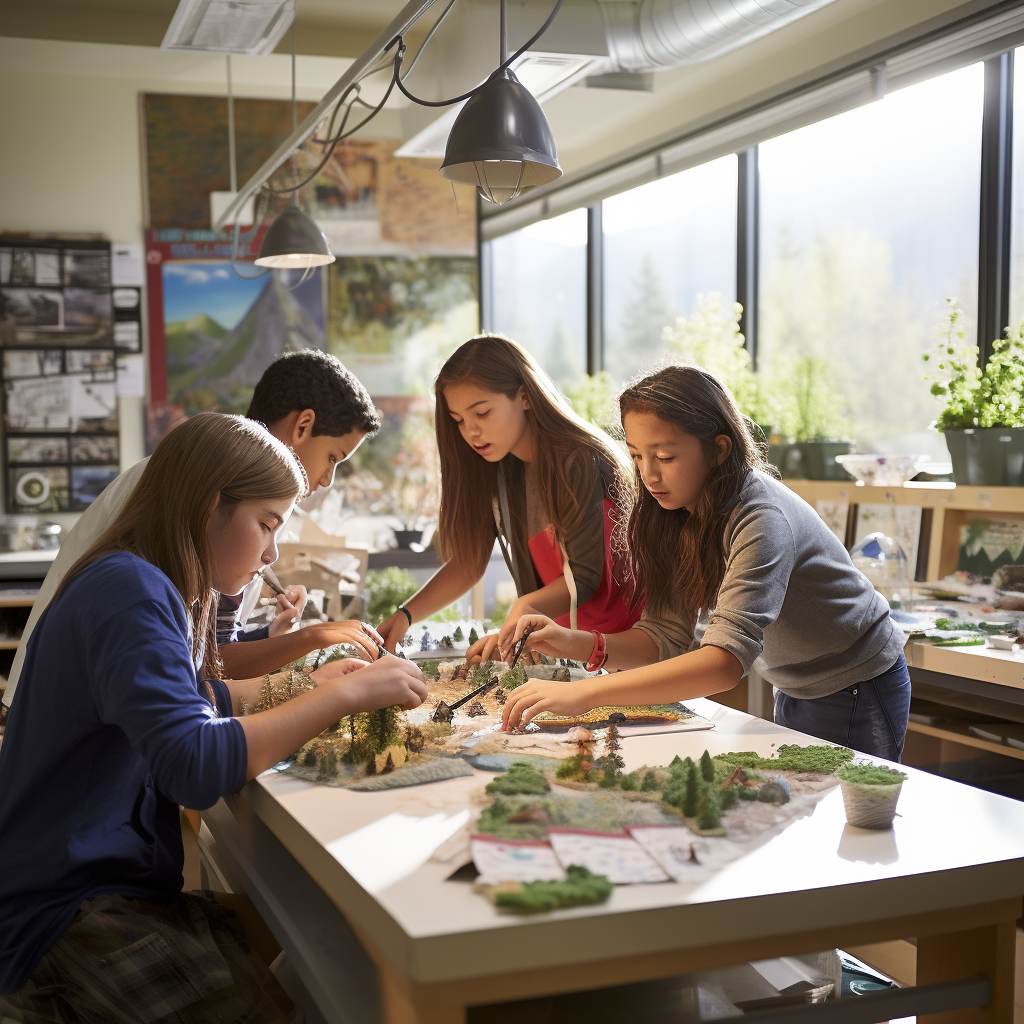Supporting Gifted Learners: Essential School Strategies
Recognizing and understanding the unique characteristics of gifted learners is the cornerstone of providing the tailored educational environment they need to thrive. Giftedness in the classroom is often characterized by an advanced ability to learn and apply knowledge quickly, an insatiable curiosity, and a deep passion for specific subject areas. These students may also exhibit heightened creativity, problem-solving skills, and emotional depth.
However, without proper support, these exceptional abilities can sometimes lead to feelings of isolation, frustration, or boredom due to a mismatch between the student's learning needs and the pace or depth of traditional classroom instruction. Therefore, it's critical for educators to employ strategies that align with how to support gifted and talented learners in school, ensuring that these students are sufficiently challenged and engaged. This might include differentiated instruction, acceleration opportunities, or independent study projects that allow them to explore their interests in greater depth.
To truly nurture the potential of gifted learners, schools must adopt a holistic approach. Vanguard Gifted Academy specializes in this endeavor, offering personalized learning that is attuned to each student's readiness level, alongside a rich STREAM curriculum that integrates science, technology, research, arts, and mathematics.
If you believe your child could benefit from such an educational approach and wish to learn more, for more information or to schedule a tour, email us at gifted@vanguardgiftedacademy.org.
Creating a Stimulating Learning Environment

A stimulating learning environment is pivotal in fostering the growth of gifted and talented learners. Such an environment ensures that these students are not only acquiring knowledge but are also being challenged to think critically and creatively. To achieve this, schools must provide resources and activities that go beyond the standard curriculum, catering to the advanced intellectual levels of gifted students.
Teachers can create this enriched environment through the use of complex problem-solving tasks, hands-on experiments, and real-world applications of theoretical concepts. Incorporating student-led projects and discussions allows gifted learners to take ownership of their education and pursue their interests in depth. Additionally, integrating technology and multimedia resources can further enhance their learning experience, making education both engaging and relevant.
It is also essential to encourage a classroom culture that values diversity in thought and perspective. This can be achieved by promoting collaborative projects where gifted learners work with peers to explore different viewpoints and develop social skills. By doing so, the classroom becomes a dynamic space where gifted students are constantly stimulated to push their boundaries and achieve their full potential. In this environment, every day brings new opportunities for discovery and intellectual growth.
Differentiating Instruction for Gifted Students

Differentiating instruction is a cornerstone in the education of gifted and talented learners, as it tailors teaching methods and materials to accommodate their unique learning styles and advanced skill sets. To effectively support gifted and talented learners in school, educators must assess each student's individual needs and craft a customized learning plan that challenges them appropriately.
One approach to differentiation is to accelerate the pace of learning for students who grasp concepts quickly. This can involve compacting the curriculum to eliminate redundancy, thus allowing more time for in-depth study into subjects of interest. Alternatively, tiered assignments can provide varying levels of complexity within the same lesson, ensuring that each gifted learner is engaged at the right level of challenge.
Another strategy is to provide open-ended tasks that encourage higher-order thinking. Instead of simply recalling facts, gifted students should be asked to analyze, synthesize, and evaluate information. Projects that foster independent research and critical thinking skills can significantly enhance the learning experience for these students. By providing choices in how they demonstrate their knowledge—through written reports, presentations, or creative expressions—educators can further personalize instruction to suit each gifted learner's strengths and interests.
Ultimately, differentiated instruction for gifted learners is about creating a flexible and responsive learning environment. It's an environment that encourages exploration and supports the intellectual and emotional growth of each student, enabling them to reach their exceptional potential.
Social-Emotional Support for Gifted Learners

Gifted learners often experience unique social-emotional challenges that require tailored support to ensure their well-being alongside their academic growth. These students may feel isolated due to their distinct interests or advanced intellectual abilities, which can make social interactions with age peers more complex. To address this, schools need to foster environments where gifted students feel understood and accepted.
Implementing social-emotional learning (SEL) programs in schools is a vital part of how to support gifted and talented learners. These programs can help gifted students develop self-awareness about their emotional needs and social skills. Activities that promote empathy, build resilience, and teach coping strategies for frustration and perfectionism are particularly beneficial. Through SEL, gifted learners can better navigate the intricacies of friendships and collaborate effectively with diverse groups.
Mentorship programs also play a critical role in providing social-emotional support. Pairing gifted students with mentors—whether older students, educators, or professionals in the student's field of interest—can give them a sense of belonging and a safe space to express their aspirations and concerns. Mentors can guide students through academic challenges while offering advice on managing the emotional aspects of being gifted.
Ultimately, providing a comprehensive social-emotional support system for gifted learners helps them to develop a well-rounded personality. It not only prepares them for academic success but also equips them with the skills necessary to thrive in all areas of life.
Engaging Gifted Students with STREAM
Engaging gifted students in school requires a curriculum that is both challenging and relevant to their advanced capabilities. STREAM, which stands for Science, Technology, Research, Engineering, Arts, and Mathematics, represents an interdisciplinary approach that aligns perfectly with the educational needs of gifted and talented learners. By integrating these subjects, students are encouraged to apply their knowledge creatively and innovatively, preparing them for real-world problem solving.
Gifted students thrive in environments that offer depth and complexity. STREAM projects often involve open-ended questions and require students to engage in critical thinking and independent research. This helps to satisfy their intellectual curiosity and promotes a growth mindset. For instance, a STREAM project might ask students to design a sustainable ecosystem, incorporating biology (Science), coding for data collection (Technology), hypothesis testing (Research), constructing a model (Engineering), creative presentation (Arts), and statistical analysis (Mathematics).
The inclusion of the Arts in STREAM is particularly significant for gifted learners, as it provides a platform for self-expression and exploration of their multifaceted interests. It also fosters an appreciation for aesthetics and the importance of design, which can enhance their STEM-related projects. Collaborative STREAM activities further support social-emotional development by encouraging teamwork and communication among gifted peers.
By integrating STREAM into the curriculum, educators can provide gifted students with a stimulating educational experience that harnesses their potential. It is a dynamic way of learning that not only nurtures their academic abilities but also instills in them the confidence to explore and innovate.
Collaboration Between Educators and Families

True educational success for gifted learners often hinges on the collaboration between educators and families. This partnership is vital in understanding and meeting the unique needs of gifted and talented students. Parents and teachers can exchange insights about a child's interests, strengths, and potential areas of growth, crafting a more tailored educational experience.
Schools can foster this partnership through regular communication, such as newsletters, parent-teacher conferences, and workshops that focus on how to support gifted and talented learners in school. This open dialogue ensures that both parties are aligned on the student's goals and can work together to provide consistent support both at home and in the classroom.
Parental involvement in school activities and the learning process enriches the educational experience for gifted students. Parents can volunteer in STREAM projects, share their expertise, or provide resources that enhance the curriculum. Additionally, educators can provide parents with strategies to challenge their gifted children at home, ensuring learning is continuous and extends beyond the classroom walls.
At Vanguard Gifted Academy, we understand the importance of this collaborative effort. We encourage families to engage with our educators and become active participants in their child's education. For more information or to schedule a tour, email us at gifted@vanguardgiftedacademy.org.
Together, educators and families can create a supportive and enriching environment that empowers gifted students to reach their full potential, making the most of the specialized educational opportunities provided at Vanguard Gifted Academy.
